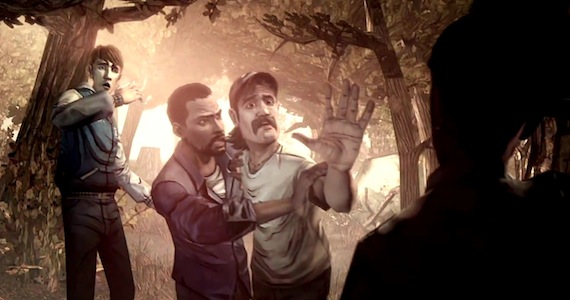I still remember getting a chance to play Oregon Trail during recess in school. Teachers never once considered using it – or any other video game – as a teaching tool, though.
According to a brief report at NRK.no (as translated by GameSpot), students at Nordahl Grieg High School in Norway are actually playing a video game to learn about ethics. It’s the critically acclaimed title from Telltale Games, The Walking Dead. Teacher Tobias Staaby says he was looking for a “good catalyst for discussions about ethical dilemmas,” and he found it in Telltale’s narrative-driven adventure.
His pupils played the game for a couple of weeks, during which time they took anonymous polls. This way, they could see which decisions proved most popular in the class. Staaby added that at the end of the lesson, students were “contextualizing ethical dilemmas they probably wouldn’t have thought about otherwise.”

Thankfully, this is a positive report about games. It’s difficult to find these days, as one becomes more and more convinced that the mainstream media only searches for evidence to further smear the reputation of the industry. Kids learning about ethics from a game? Man, won’t certain anti-game activists be irate.
The wave of the future?
One of the reasons I think gaming works extremely well in education? Oh, it should be obvious: interaction. When we interact with something, we’re more likely to remember it; our brains interpret the activity differently. That’s why we’re taught to take notes. It’s because the physical act of writing the fact helps to store it in our memory banks for future use. Furthermore, when it comes to the question of ethics, you really need theoretical situations to discuss. Do you know how many such situations exist in our game stories…?






Published: Jan 19, 2014 07:28 pm